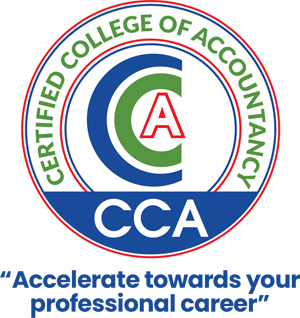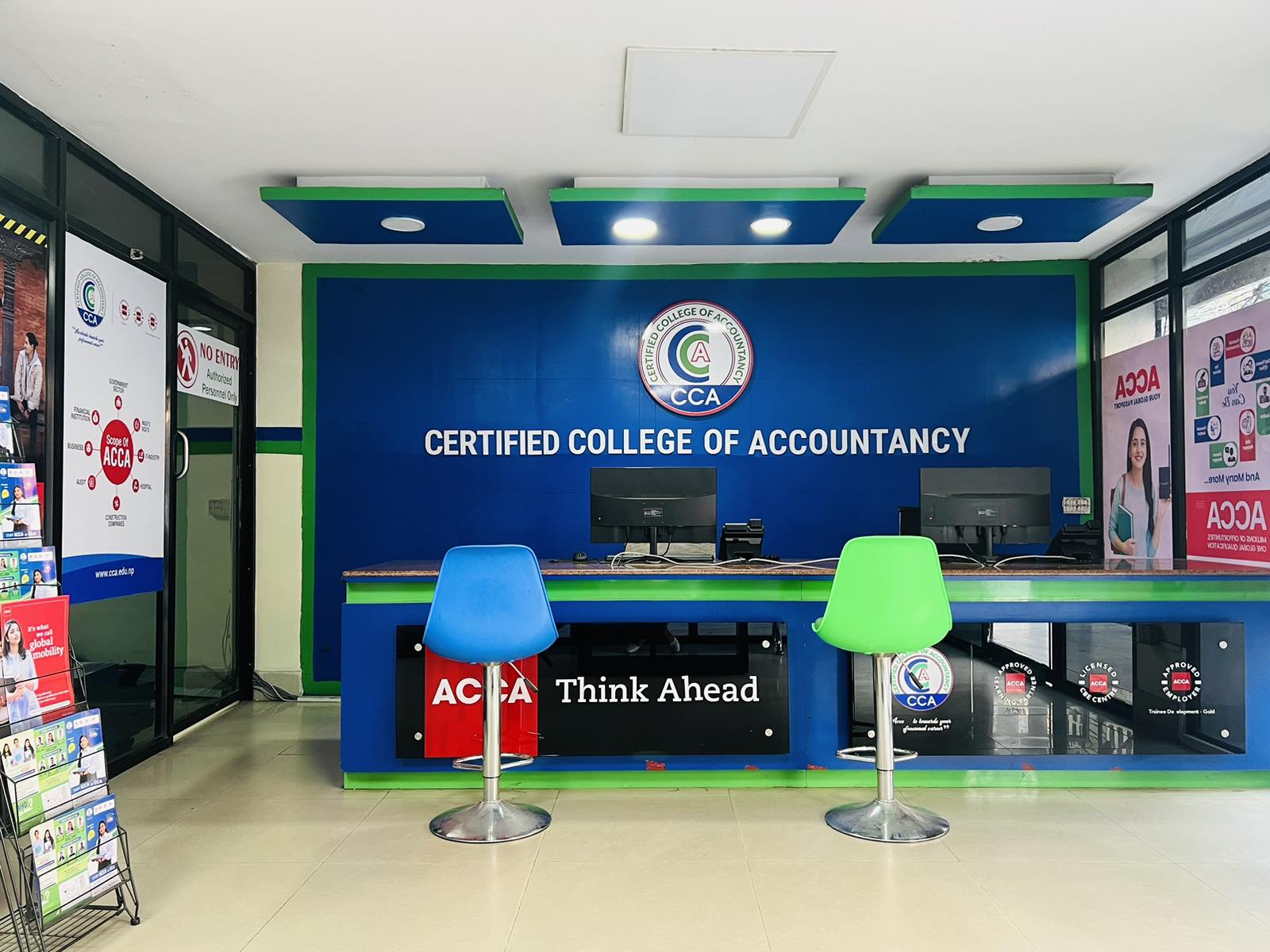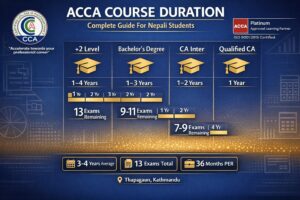The Association of Chartered Certified Accountants (ACCA) is a British accountancy body which offers the Chartered Certified Accountant qualification worldwide. Formed in 1904, it is now recognized in over 179 countries. It is one of the world’s largest and fastest-growing accountancy bodies which have more than 219,000 fully qualified members and 527,000 students worldwide.
It is not a degree; it is a professional certification which makes you a global chartered accountant. It gives knowledge about handling all the fields of business such as audit, tax, accounting, management accounting, financial management and many more that provides graduates the opportunity to work across a multitude of sectors, such as banking, financial services, the corporate sector, and independent consulting practices, all over the world.
How is it different than accounting degree?
1. Award
The main difference between ACCA Course and accounting degree is that ACCA degree is awarded by a professional accountant body. Whereas, accounting degree is awarded by concerned university.
2. Recognition:
ACCA is recognized globally. Currently, it is recognized in 179 countries. Whereas, accounting degree is recognized in local markets.
3. Completion Time:
It takes approximately 4-5 years to complete accounting degree. However, it takes approximately 3.5 years to complete ACCA. So, if you are in hurry.
4. What to study?
In an Accounting Degree you have to take on a wide breadth of subjects as you have to study core accounting subjects plus electives from field of subjects. Whereas, In ACCA you have to focus on technical aspects and principles of accounting that are required of a professional accountant.
5. Difficulty:
In terms of difficulty, ACCA is more difficult to complete than accounting degree as it incorporates the difficulty levels of a Bachelor’s Degree and Master’s Degree into one qualification.
6. Cost:
If you compare fee structure, you can find that ACCA is way cheaper than accounting degree. Furthermore, you can choose taking ACCA lessons privately without going to college and saving institutional fees.
7. Career Option:
Most of the ACCA members work in accounting or financial field. But, the people obtaining accounting degree can work inside or outside accounting field.
In conclusion, both subjects are important in their own way and perspective. What you study depends upon your interest, your budget and career you envision.
How does the ACCA Qualification work?
Student progress through three elements of the ACCA Qualification on their journey to ACCA membership, these are:
Applied Knowledge
The Applied Knowledge exams provide students with a broad introduction to the world of finance and develop your essential understanding and techniques in accounting. These exams are:
- Accountant in Business (AB)
- Management Accounting (MA)
- Financial Accounting (FA)
Applied Skills
The Applied Skills exams build on existing knowledge and understanding and develop strong, broad and practical finance skills required of future strategic professional accountant in any sector or industry. These exams are:
- Corporate and Business Law (LW)
- Performance Management (PM)
- Taxation (TX)
- Financial Reporting (FR)
- Audit and Assurance (AA)
- Financial Management (FM)
Strategic Professional
The Strategic Professional exams prepare students for future leadership positions. They develop the strategic vision using your unique blend of technical, ethical and professional skills. And you can specialize in areas that best suit your career ambitions. Students must complete both Essentials exams and choose two of the Options. These exams are:
Essentials
- Strategic Business Leader (SBL)
- Strategic Business Reporting (SBR)
- Advanced Financial Management (AFM)
- Advanced Performance Management (APM)
- Advanced Taxation (ATX)
- Advanced Audit and Assurance (AAA)
Ethics and Professional Skills Module
Students are required to complete our Ethics and Professional Skills module which develops in students the complete range of skills that employers told us they need. By introducing students to the full spectrum of advanced ethical and professional skills and exposing them to realistic business situations, our students are ready to shine with recruiters and be really credible in the workplace.
Practical Experience Requirement
Being a confident, inspiring and trusted professional comes with experience so to qualify as an ACCA member you must complete a minimum 36 months’ relevant work experience and achieve 9 performance objectives.
Your time in a relevant role and performance objectives need to be signed off by a practical experience supervisor. The practical experience requirement allows you to put the knowledge learnt through your studies into practice in a real work environment






